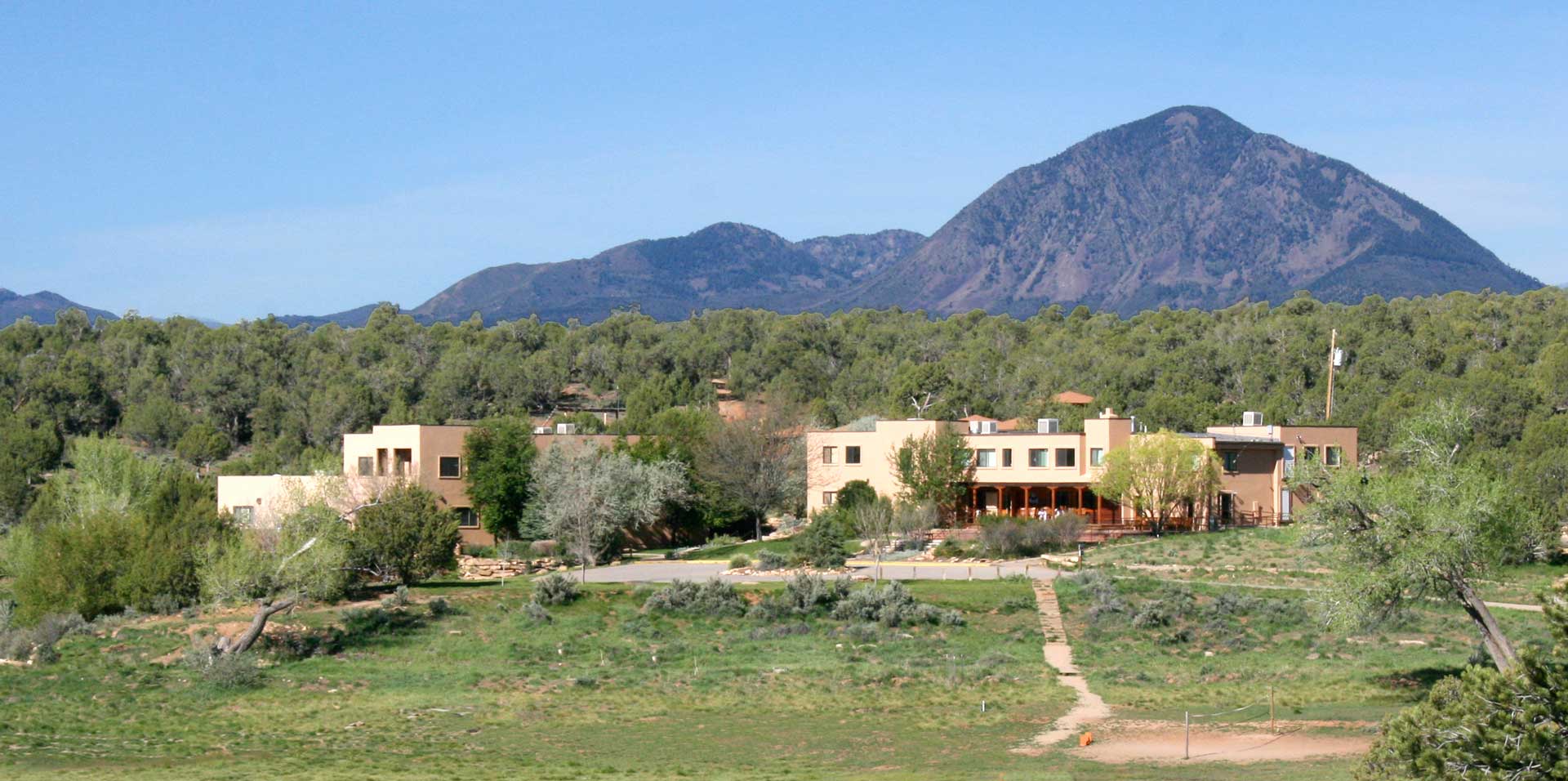COLLEGE FIELD SCHOOL
College Field School
Monday, May 20 – Saturday, July 6, 2024
Application Deadline: Friday, March 31, 2024
Field School Tuition: $2,130
(includes instruction, housing, and meals)
Earn college credit at Crow Canyon during College Field School!
Tuition for six credit hours: Undergraduate students may enroll in Anthropology 379 through Adams State University.
OVERVIEW
Under the direction of Dr. Susan C. Ryan, the Center’s Executive Vice President of the Research Institute, undergraduate students may enroll in six credit hours (Anthropology 379) through Adams State University in Colorado.
During this seven-week experiential learning program, you will learn the fundamental skills and techniques essential to beginning, and continuing, your career in archaeology or anthropology. From archaeological site identification to excavation, artifact processing to laboratory analysis, and everything between, you and your classmates will participate in real-world opportunities that will help to perfect your skills while working alongside professional archaeologists. In addition to the hands-on survey, excavation, and laboratory experiences, you will also participate in evening programs, field trips, service-learning projects, public events, and more that will enrich your education. This College Field School was built specifically for students to gain the necessary knowledge, skills, and abilities to help you find employment and excel in the field.
To participate in College Field School, you must submit an application before Friday, March 31, 2024. Scholarships are available. If you have any questions regarding the application process, scholarships, or the program, please contact us at fieldschool@crowcanyon.org.
Crow Canyon’s College Field School is certified by the Register of Professional Archaeologists.
Anonymous Testimonials from former College Field School Students:
“Working with Native Scholars and hearing their perspectives on our work was extremely valuable to me. It’s something I will carry with me forever, personally and academically.”
“Working in teams and learning how to cooperate on a research project will pay dividends for future collaboration.”
“I didn’t know much about graduate school things before going into this program. Nor did I know too much about the professional world of archaeology, but now I have a clearer picture of both.”
Accommodations
Lodging is provided in shared modern cabins on Crow Canyon’s 170-acre campus, just outside the town of Cortez. Students must provide their own sleeping kits and personal gear and will be housed in cabins designed to be energy efficient. Cabins include shower and toilet facilities. Housing costs are included with this program.
-
- Crow Canyon provides Wi-Fi Internet service in campus buildings.
- Laundry facilities will be made available to students.
Meals
This program provides all meals, seven days a week for breakfast, lunch, and dinner. On-campus meals are served cafeteria-style in the lodge. Dinner and lunches on campus include a salad bar and a vegetarian entree. Fresh fruit, lemonade, iced tea, and coffee are available on campus all day. If you are working at the Haynie site or on survey, snacks, water, and a picnic lunch (sandwiches, fresh fruit, chips, and cookies) are provided. Juice, spring water, and soda are available from the vending machine behind the lodge. Meal costs are included with this program.
Campus
Crow Canyon’s 170-acre campus, located just outside the town of Cortez, features a large meadow, pinyon and juniper forests, and spectacular views of Mesa Verde and the La Plata Mountains. A short nature trail winds through the woods. Buildings on campus include the lodge, cabins, 10 Navajo-style hogans, two learning centers, and the Gates Archaeology Laboratory (the Gates Building), which houses classrooms, libraries, offices, and a material culture laboratory. A lounge area is also available in the Gates Building.
All indoor facilities are smoke-free. Wildfires are a real danger in our area; if you smoke, please do so only in the designated smoking area, at the picnic table behind the lodge. Smoking by minors (under age 18) is prohibited. In addition to hosting participants in Crow Canyon programs, our rural campus is also visited by a variety of wildlife, including deer, rabbits, marmots, birds, snakes, lizards, foxes, coyotes, and the occasional mountain lion.
The field school fee covers in-field transportation, field equipment rental, housing, meals, instructor fees, evening lectures, and field trips to ancestral Pueblo sites in the Mesa Verde region. Transportation to and from Cortez and your personal gear are your responsibility. Weekends are yours to explore the cultural and natural attractions in the area.

